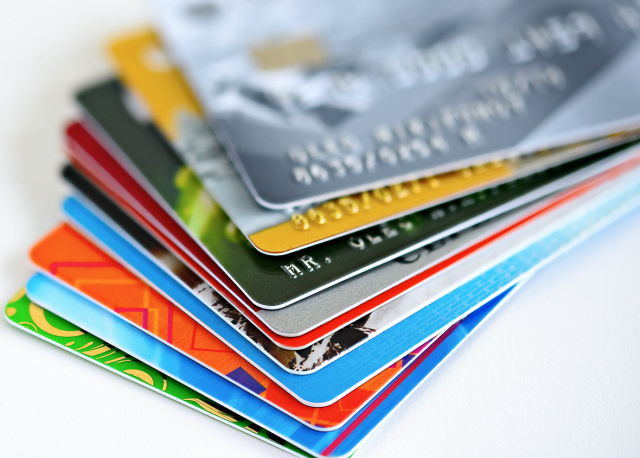
Americans Are on a Credit Card Binge
Rising levels of credit card debt are a good thing and a bad thing.
And they are definitely rising: during the final three months of 2015, Americans added $52.4 billion to what they owe on their credit cards, according to a new CardHub report based on Federal Reserve Board data.
For context, that is nearly as much as was added to cards in all of 2014.
Spending rises when consumers have jobs or get better jobs and when the economy is growing, as it is now, said Lowell Ricketts, an analyst with the Center for Household Financial Stability at the Federal Reserve Bank of St. Louis. With incomes increasing, he said, “they’re in a stronger position to make those investments like purchasing a new home or renovating their existing homes.” The surge in credit card debt indicates that people are using plastic to pay for things like the furniture for the new house.
The bad part is what happens to over-leveraged spenders when the economy suddenly turns down, which is what WalletHub analyst Jill Gonzalez is concerned about. “We are starting to get into scary territory here,” she said. The fourth-quarter binge “was much larger than usual.”
During all of 2015, credit card balances, net of payments, increased by nearly $71 billion, substantially higher than the $57.4 billion increase in 2014. Last year’s fourth-quarter binge was only part of the story, Gonzalez said.
During the first quarter of 2015, people followed their usual pattern of paying down debt on the strength of New Year’s resolutions and tax refunds. That reversed, and the new credit card debt added in the second, third and fourth quarters of 2015 were the highest quarterly totals since 2009.
Meanwhile, defaults on the next-generation debt problem continue unabated: the St. Louis Fed reported that 90-day delinquencies on student loans last year held at 11 percent – double their levels a decade ago. That figure doesn’t count former students who are in loan forbearance, grace periods, or deferments, which can also indicate financial problems.
Trouble comes in a downturn when the newly unemployed or people whose earnings decline are no longer able to keep up with their debts. We’re not there yet, but downturns happen.
If only we could predict when.
To stay current on our Squared Away blog, we invite you to join our free email list. You’ll receive just one email each week – with links to the two new posts for that week – when you sign up here.
Comments are closed.







Are the credit card balances sustainable at a household level? Is the default in credit card payments climbing?
A good thing for higher profits and higher executive pay.
A bad thing for the suckers who keep paying businesses more than businesses are paying them.
My view of the same data here.
https://larrylittlefield.wordpress.com/2016/03/13/americas-debts-sorry-but-things-are-not-fine-and-the-foreigners-and-minorities-are-not-to-blame/
Did I really just read, “too many people are answering the phone?” That is the most ludicrous blame-the-victim line I have ever read!